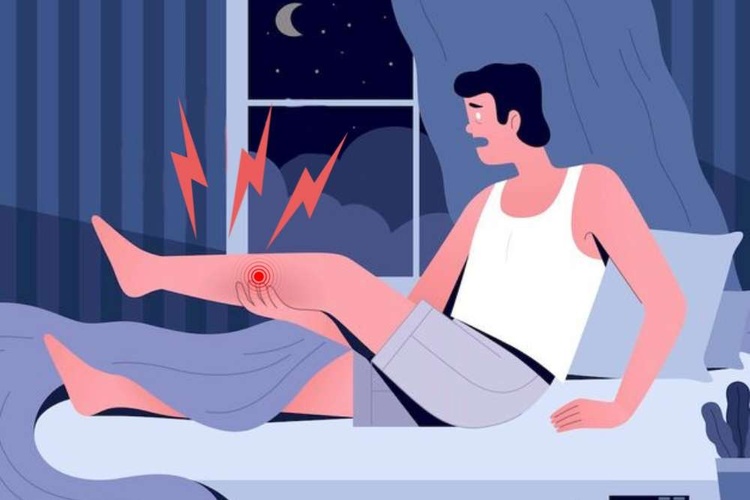The Ultimate Guide to Effective Sleep Aids: Finding Your Perfect Solution
Sleep is essential for our overall health and well-being, yet millions of people struggle with insomnia and other sleep disorders. Fortunately, there are numerous sleep aids available to help you achieve a restful night's sleep. In this comprehensive guide, we'll explore various types of sleep aids, their effectiveness, and how to choose the right option for your needs.

What are the most common types of sleep aids?
Sleep aids come in various forms, including prescription medications, over-the-counter remedies, and natural supplements. Some of the most common types include:
- Prescription sleep medications (e.g., Ambien, Lunesta)
- Over-the-counter antihistamines (e.g., Benadryl, Unisom)
- Melatonin supplements
- Herbal teas and supplements (e.g., chamomile, valerian root)
- Sleep aid gummies for adults
- Essential oils (e.g., lavender, bergamot)
Each type of sleep aid works differently and may be more suitable for certain individuals or sleep issues.
How do natural sleep aids work to improve sleep quality?
Natural sleep aids that work often function by promoting relaxation, regulating sleep-wake cycles, or addressing underlying factors that contribute to sleep disturbances. For example:
- Melatonin supplements help regulate the body’s internal clock, signaling when it’s time to sleep.
- Herbal remedies like chamomile and valerian root have mild sedative properties that can induce relaxation.
- Magnesium supplements may help reduce muscle tension and promote calmness.
- L-theanine, an amino acid found in tea, can increase relaxation without causing drowsiness.
- Passionflower and lemon balm have been shown to reduce anxiety and improve sleep quality.
These natural sleep aids often have fewer side effects compared to prescription medications, making them a popular choice for those seeking gentler alternatives.
What are the benefits of sleep aid gummies for adults?
Sleep aid gummies for adults have gained popularity due to their convenience and pleasant taste. Some benefits include:
- Easy to consume: No need for water or swallowing pills.
- Precise dosing: Each gummy contains a specific amount of active ingredients.
- Appealing flavors: Makes taking sleep aids more enjoyable.
- Combination of ingredients: Many gummies contain multiple natural sleep-promoting compounds.
- Portable: Easy to take with you when traveling or staying away from home.
However, it’s important to note that not all sleep aid gummies are created equal. Look for products with high-quality ingredients and appropriate dosages for optimal effectiveness.
Are prescription sleep aids more effective than natural alternatives?
The effectiveness of sleep aids can vary depending on the individual and the underlying cause of sleep issues. Prescription sleep aids are often more potent and may provide faster relief for severe insomnia. However, they also come with a higher risk of side effects and potential dependency.
Natural sleep aids, while generally milder, can be effective for many people with occasional sleep problems or mild insomnia. They often have fewer side effects and can be used long-term with less risk of dependency. Some people find that a combination of natural remedies and lifestyle changes is sufficient to improve their sleep quality.
How can you choose the right sleep aid for your needs?
Selecting the most appropriate sleep aid depends on various factors:
- Severity of sleep issues: Mild, occasional insomnia may respond well to natural remedies, while chronic insomnia might require prescription medication.
- Underlying health conditions: Certain medical conditions may contraindicate some sleep aids.
- Medication interactions: Check for potential interactions with any current medications.
- Personal preferences: Consider factors like taste, form (pill, liquid, gummy), and ease of use.
- Side effect profile: Evaluate potential side effects and how they may impact your daily life.
- Duration of use: Some sleep aids are intended for short-term use, while others can be used long-term.
It’s always best to consult with a healthcare professional before starting any new sleep aid regimen, especially if you have ongoing sleep issues or other health concerns.
What are some popular sleep aids and their estimated costs?
When considering sleep aids, it’s important to compare options and understand their associated costs. Here’s a comparison of some popular sleep aids:
| Product/Service | Provider | Cost Estimation |
|---|---|---|
| Melatonin Gummies | Nature Made | $12-$15 for 60 gummies |
| Valerian Root Capsules | NOW Foods | $8-$12 for 100 capsules |
| ZzzQuil Nighttime Sleep Aid | Vicks | $10-$15 for 24 liquid capsules |
| Ambien (prescription) | Generic | $15-$30 for 30 tablets (with insurance) |
| Chamomile Tea | Twinings | $4-$6 for 20 tea bags |
| Lavender Essential Oil | Plant Therapy | $8-$12 for 10ml bottle |
Prices, rates, or cost estimates mentioned in this article are based on the latest available information but may change over time. Independent research is advised before making financial decisions.
When choosing a sleep aid, consider both effectiveness and cost. Some natural options like chamomile tea or essential oils may be more affordable for long-term use, while prescription medications might have higher upfront costs but could be more effective for severe insomnia. Always consult with a healthcare provider to determine the most appropriate and cost-effective solution for your specific needs.
In conclusion, there are numerous sleep aids available to help combat insomnia and improve sleep quality. From natural remedies to prescription medications, the key is finding the right option that works best for your individual needs and circumstances. By understanding the different types of sleep aids, their effectiveness, and potential costs, you can make an informed decision to achieve better sleep and overall well-being.
This article is for informational purposes only and should not be considered medical advice. Please consult a qualified healthcare professional for personalized guidance and treatment.
The shared information of this article is up-to-date as of the publishing date. For more up-to-date information, please conduct your own research.




